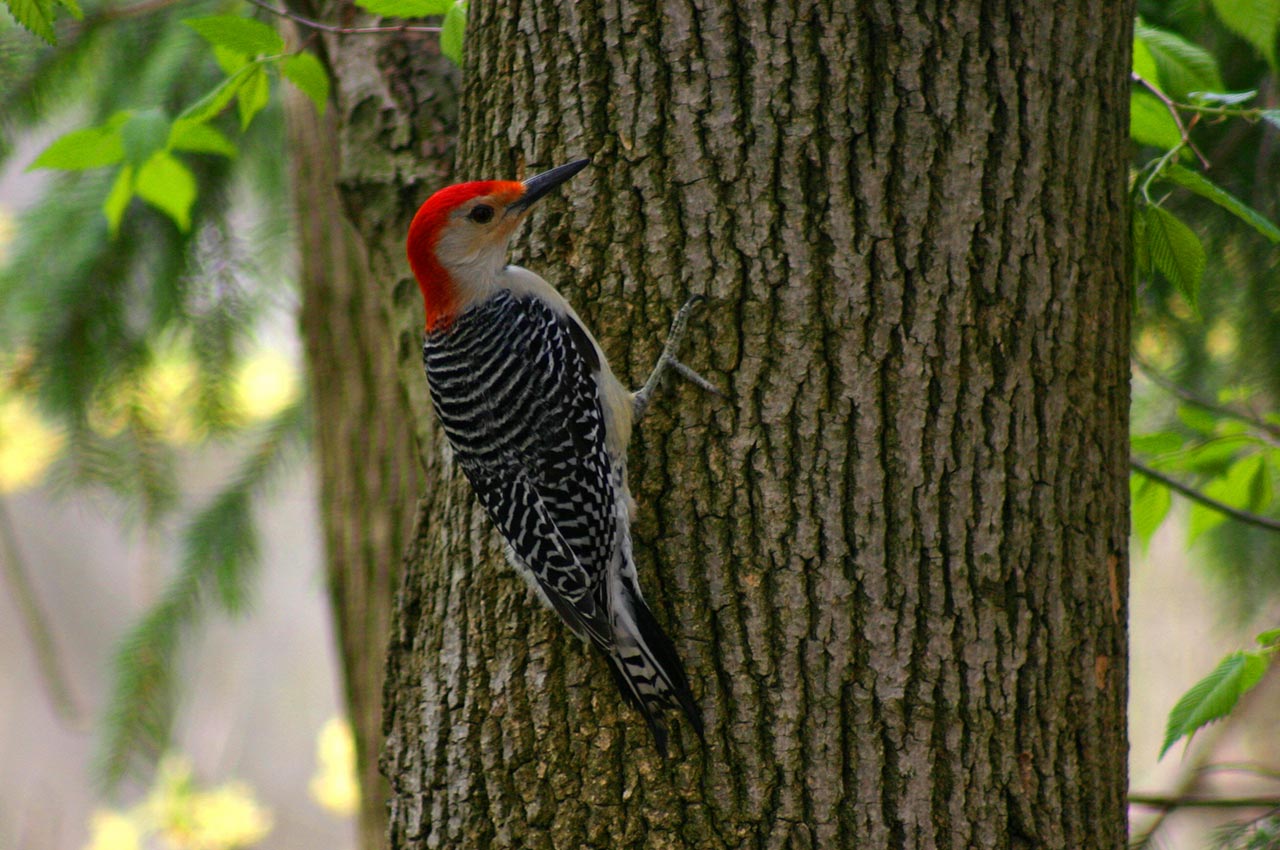Woodpeckers in Florida: Recognition Tips and Habitat Preferences
Woodpeckers in Florida: Recognition Tips and Habitat Preferences
Blog Article
Introducing the Tricks of Woodpeckers: Habits, Habitat, and Much More
Woodpeckers, with their special behaviors and specialized adaptations, have lengthy interested researchers and nature lovers alike. By discovering the enigmas bordering woodpeckers' habits and habitat options, a much deeper understanding of these bird marvels arises, providing a glimpse into their fascinating world.
Woodpecker Habits Insights
In examining woodpecker actions, a fascinating display of specialized abilities and adaptations arises, dropping light on their impressive environmental specific niche. Woodpeckers, understood for their unique drumming on trees, have a range of behavioral attributes that contribute to their survival and success in their atmosphere.
Moreover, woodpeckers display an unique feeding behavior defined by their capability to remove pests from tree bark using their specialized beaks. Their lengthy, barbed tongues help in capturing victim, while their solid neck muscle mass supply stability and accuracy throughout pecking motions. This feeding strategy allows woodpeckers to gain access to surprise insect larvae and extract them with impressive performance.
Environment Preferences and Selection
What variables affect the habitat choices and selection of woodpeckers? One important element affecting woodpecker habitat choice is the accessibility of appropriate nesting websites. Woodpeckers usually prefer woodlands with a mix of mature trees that provide enough chances for tooth cavity excavation.
In addition, woodpeckers reveal a choice for habitats with a bountiful supply of food sources. They are mainly insectivorous, feeding upon beetles, ants, larvae, and various other bugs found in worn out timber or tree bark. Consequently, woodpeckers tend to prefer woody locations with a diverse insect populace to fulfill their dietary requirements.
Moreover, the presence of dead or worn out trees is another vital variable in woodpecker environment selection. These trees not only give food sources yet additionally supply ideal substratum for dental caries excavation. Dead trees are vital for the maintenance of healthy woodpecker populaces, as they play an important duty in the woodpeckers' life process and ecological community dynamics.
Feeding Practices and Diet Make-up
Woodpeckers demonstrate a specialized feeding behavior concentrated on foraging for insects within numerous habitats. Their diet primarily includes bugs such as beetles, ants, caterpillars, and spiders, which they find by touching on tree bark and listening for the audio of activity inside. Woodpeckers utilize their solid beaks to drill into the timber and their long, barbed tongues to remove prey from gaps. In enhancement to bugs, woodpeckers additionally consume tree sap, fruits, nuts, and seeds, adding selection to their diet relying on the period and availability of food sources.
The foraging techniques of woodpeckers are well-adapted to their arboreal way of living (Woodpeckers in Florida). Their ability to excavate wood not just gives them with food however additionally helps Go Here in creating nesting cavities and establishing territories. Woodpeckers play an important duty in keeping the health and wellness of woodlands by controlling insect populations and assisting in the disintegration of wood. Recognizing their feeding routines and diet plan composition is vital for conservation initiatives targeted at protecting these distinct and valuable birds.
Drumming Appears and Interaction
Utilizing fast drumming audios on different surfaces, woodpeckers utilize a distinctive type of interaction to indicate territory limits and draw in companions. This drumming habits is not just a means of communication yet additionally acts as a means for woodpeckers to establish their visibility within a certain navigate to these guys location. The strength, speed, and pattern of the drumming can communicate important information to other woodpeckers in the location.
Woodpeckers make use of drumming sounds to introduce their existence in a territory and to warn off potential burglars. The loud and repetitive nature of the drumming functions as a clear signal to various other woodpeckers that the area is currently declared. This aids in reducing disputes and decreasing physical fights between people.

Survival Adaptations and Specialized Anatomy
/https://tf-cmsv2-smithsonianmag-media.s3.amazonaws.com/filer_public/30/ac/30acf469-09cd-4fcc-a812-1aa30f477578/aprmay2024_l09_woodpeckers.jpg)
Verdict
To conclude, woodpeckers exhibit distinct habits, such as drumming sounds for communication, and have actually specialized anatomy for survival in their selected habitats. Their feeding routines and diet composition additionally demonstrate their flexibility to different atmospheres. By understanding these aspects of woodpeckers, researchers and guardians can much better protect and protect these remarkable birds and their environments.
Report this page